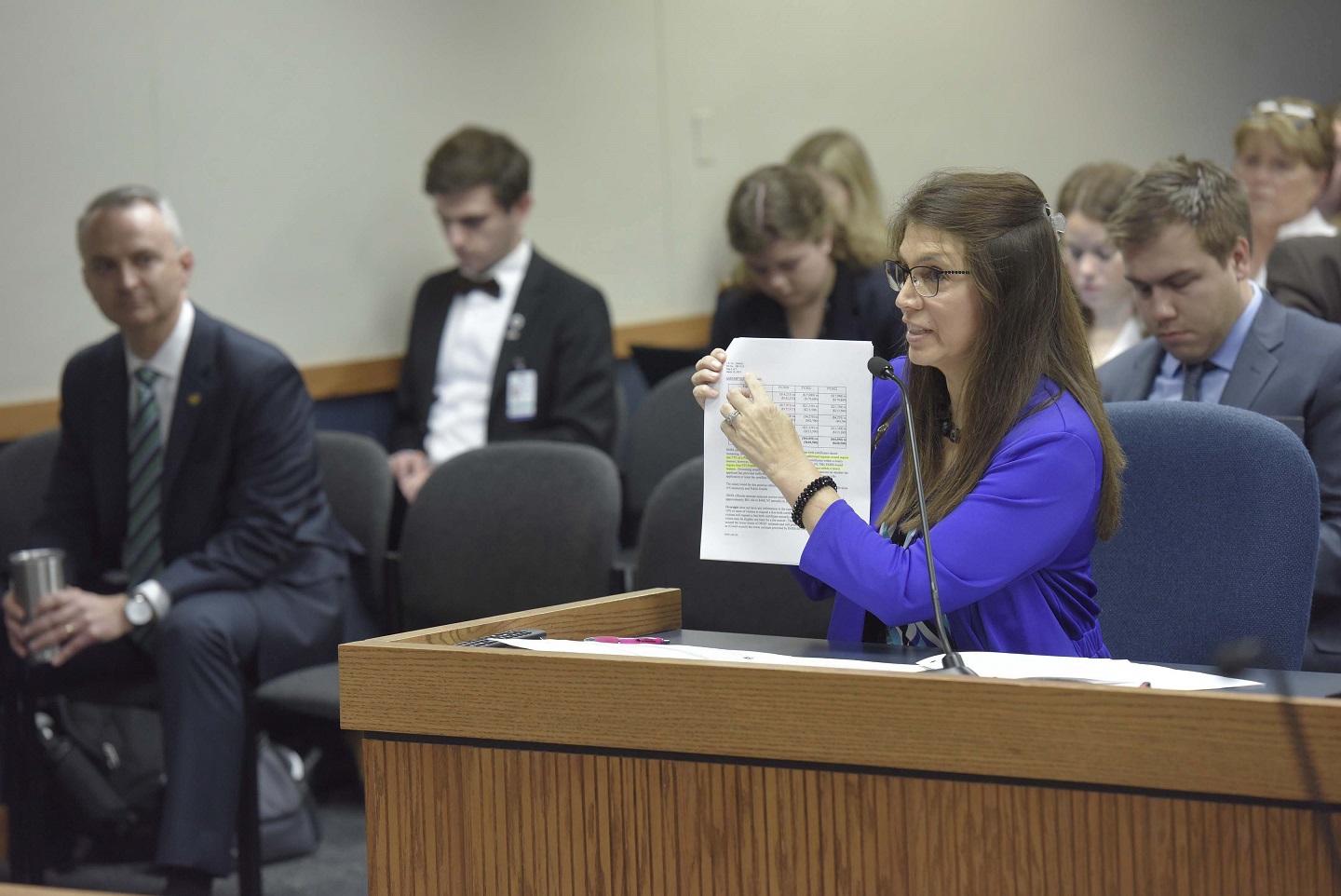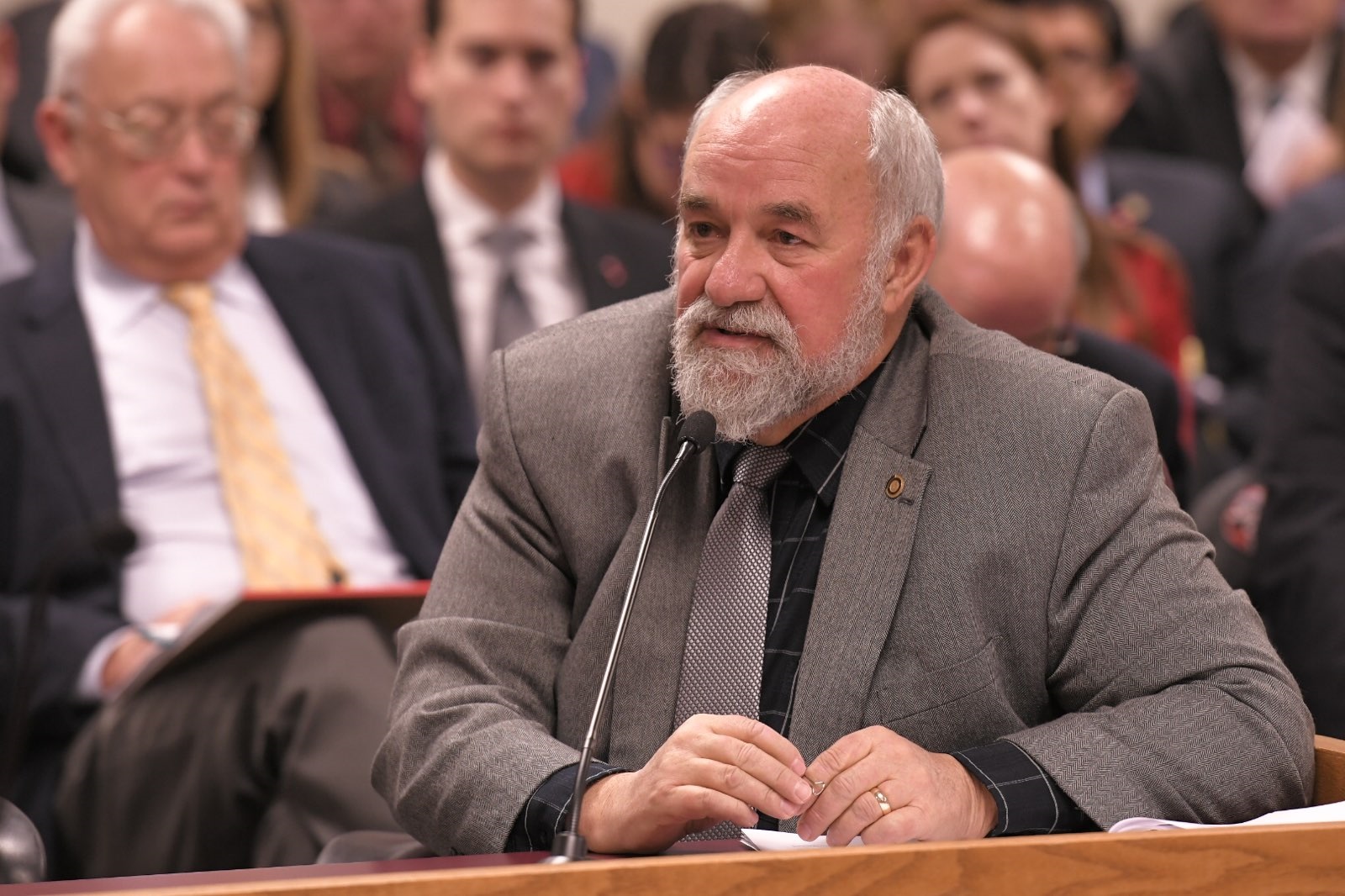House lawmakers are being asked to consider an effort late in the session to let judges take guns out of the hands of domestic abusers.

State law does not prevent those with full orders of protection against them from possessing firearms. Federal law does, but that means federal agents have to enforce and prosecute such violations. Advocates say that leaves many Missouri victims of domestic violence in terror, and many have been murdered, because their abusers were allowed to keep their guns.
House Bill 960 would match the state law to federal so that state judges could require that abusers not be allowed to possess or purchase firearms, and so that state authorities could enforce those orders.
The bill is sponsored by St. Louis representative Tracy McCreery (D).
“Adoption of this federal standard would still allow for constitutional carry, but would prevent perpetrators of domestic violence from owning a firearm,” McCreery told the House Committee on General Laws. “I think that it’s important to empower local officials and believe that this bill’s passage would enhance our ability to assist victims.”
Colleen Coble, Director of the Missouri Coalition Against Domestic and Sexual Violence, said Missouri needs a state law against gun possession by those convicted of violence against family members, and those who have an order of protection against them after a full court hearing.
“As a result of that, 57 Missourians – women – paid for that with their lives in the last year,” said Coble. “This is not a Second Amendment issue. This is a homicide prevention issue. This is about public safety, and this is about accountability for those who are known by law enforcement officers to be the most likely to continue to escalate and use violence against their victims: those who harm family members.”
The committee heard emotional testimony from several who had lost loved ones to domestic abusers who used firearms. Carla West, the Court Advocate at New House Domestic Violence Shelter in Kansas City, said her sister was shot to death by her husband in 2013. He had prior convictions for domestic assault.
“My brother-in-law, other than being abusive to my sister, was pretty much a law-abiding citizen,” said West. “I believe with all my heart that if there would have been a law preventing him from having a gun he would have thought twice about having one, and my sister might still be here today.”
McCreery, who said she owns guns herself, said this issue stems from the passage of Senate Bill 656 in 2016, which allowed for constitutional carry in Missouri, effectively replacing the concealed carry permit system that had been in place.
The legislation has Republican backing. As Dardenne Prairie Republican Ron Hicks told McCreery, “As one who, as you know, would definitely get on you about something [if I thought you were violating Second Amendment] rights on, I can agree with you on this. I think it’s a loophole that might’ve been overlooked,” said Hicks.
No one spoke against the bill in the committee hearing.
Previous years’ versions of the bill have been sponsored by a Republican. Each was heard by a House committee but did not advance.
With only four weeks remaining in the session, backers are hopeful that the language of HB 960 can be added to other legislation that is closer to passage.
The Committee has not voted on HB 960.
Story on last year’s legislation:
Bipartisan House bills would close ‘loophole’ that allows domestic abusers to have guns


.jpg)


